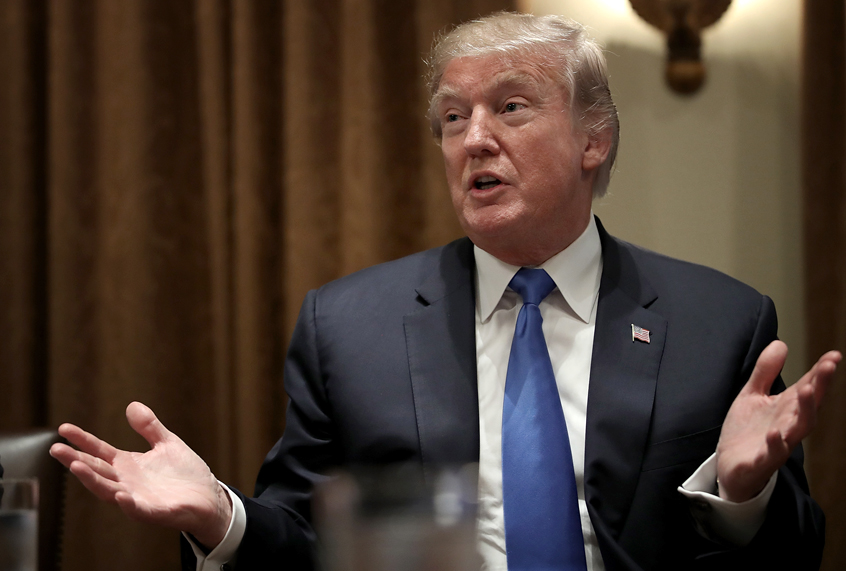A new report reveals that President Donald Trump attempted to pressure several Senate Republicans into ending the ongoing investigation into Russia’s alleged meddling in the 2016 presidential election.
Trump contacted senior members of the Republican Party within the Senate to insist that they end the Russia investigation as quickly as possible, according to The New York Times. This included Senator Richard Burr of North Carolina, who chairs the Senate Intelligence Committee; Senator Roy Blunt of Missouri, who is a member of the Senate Intelligence Committee; and Senate Majority Leader Mitch McConnell of Kentucky.
““It was something along the lines of, ‘I hope you can conclude this as quickly as possible,’” Burr told the Times. He said that he replied to Trump that he would finish the investigation after he had exhausted everyone that he needed to talk to.
White House spokesman Raj Shah responded to the criticisms by saying that Trump “at no point has attempted to apply undue influence on committee members,'” adding that “there is no evidence of collusion and these investigations must come to a fair and appropriate completion.”
Senate Republicans also tried to defend Trump’s conduct, arguing that he was acting like a political novice rather than with any deliberate intent to obstruct.
Trump has been fighting off accusations of attempting to obstruct the Russia investigation prior to the most recent report. Last month the liberal think tank Brookings Institution issued a report concluding that Trump’s firing of FBI Director James Comey was likely obstruction of justice.
“Attempts to stop an investigation represent a common form of obstruction. Demanding the loyalty of an individual involved in an investigation, requesting that individual’s help to end the investigation, and then ultimately firing that person to accomplish that goal are the type of acts that have frequently resulted in obstruction convictions,” wrote Brookings analysts Barry Berke, Noah Bookbinder and Norman Eisen.
Senator Richard Burr must recuse himself from the Russia probe immediately. He spoke to Trump about shutting down the probe. That’s obstruction.#BurrMustRecuse @SenatorBurr @MarkWarner @SenFeinstein @RonWyden @MartinHeinrich @SenAngusKing @Sen_JoeManchin @SenKamalaHarris https://t.co/XpTk0j0KO5
— Scott Dworkin (@funder) December 1, 2017
Trump has committed obstruction of justice. Again.
You may recall he confessed to committing obstruction of justice on national TV in May.
The real scandal is the silence of lawmakers in between. https://t.co/ULemhAS8Rk
— Sarah Kendzior (@sarahkendzior) December 1, 2017
Pressuring senators to end an investigation that impacts him & those close to him could be further evidence of obstruction of justice by the President. Obstruction of Congressional investigations is covered by the laws, & also part of a pattern of conduct. https://t.co/ei1g0lWDgx
— Noah Bookbinder (@NoahBookbinder) December 1, 2017

